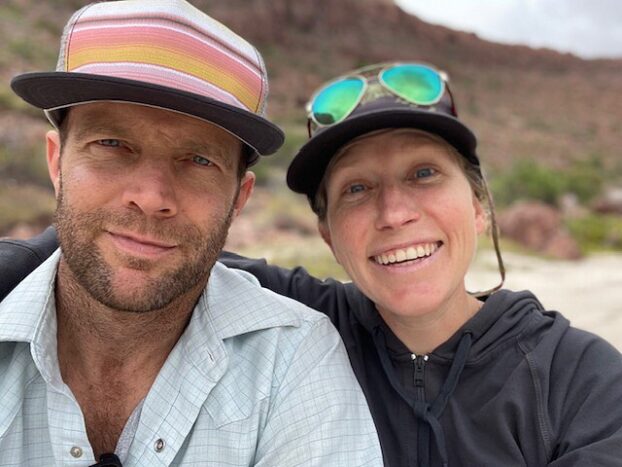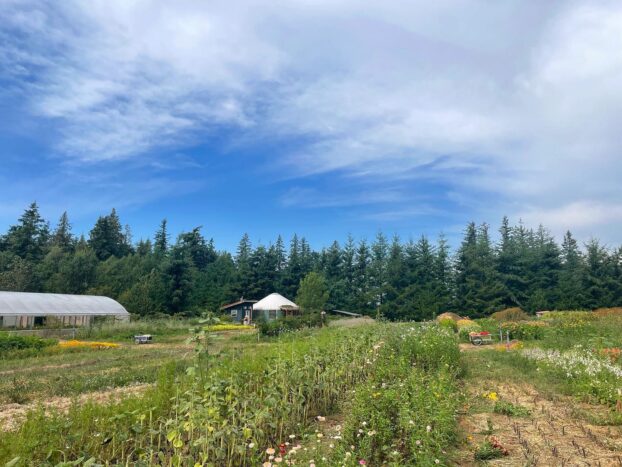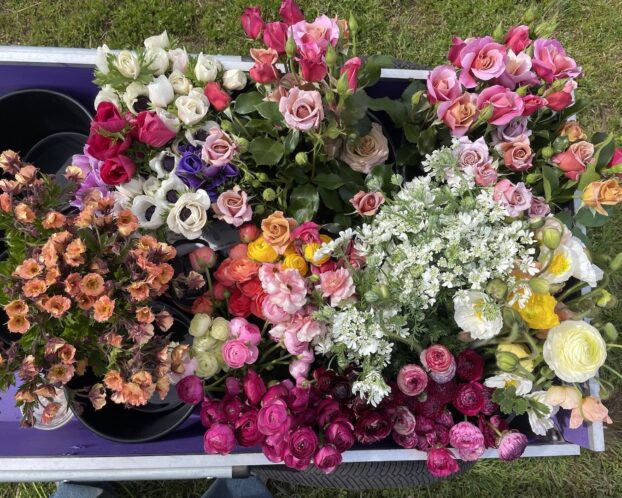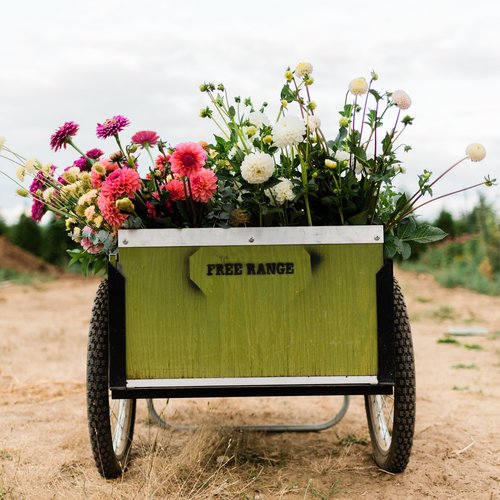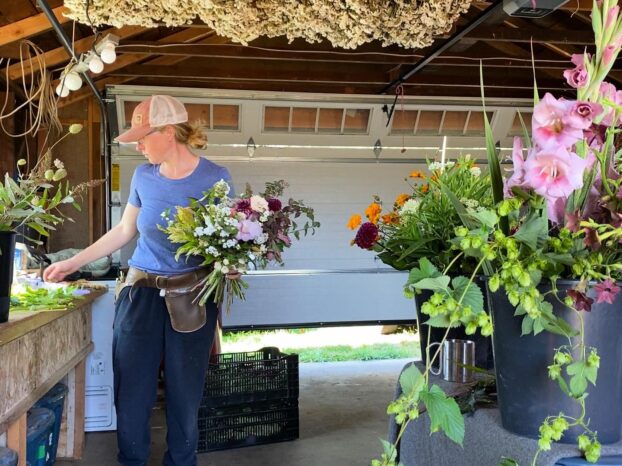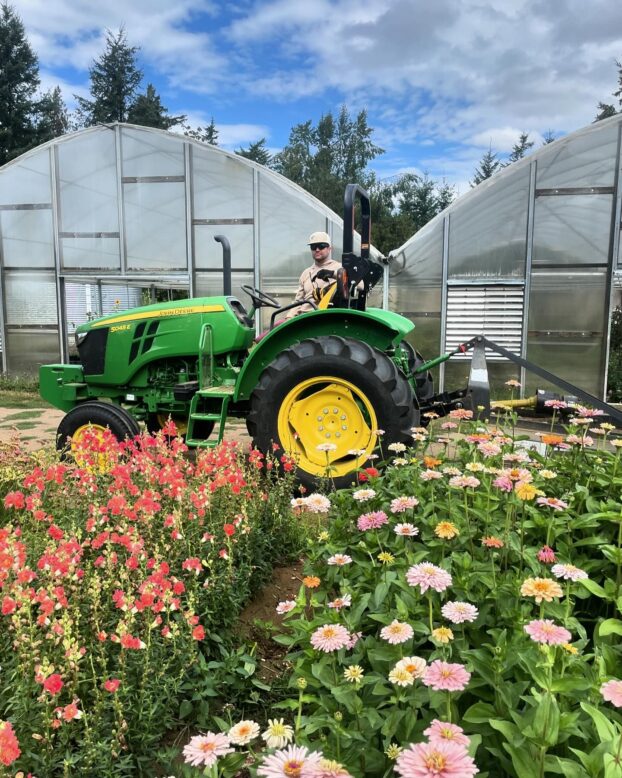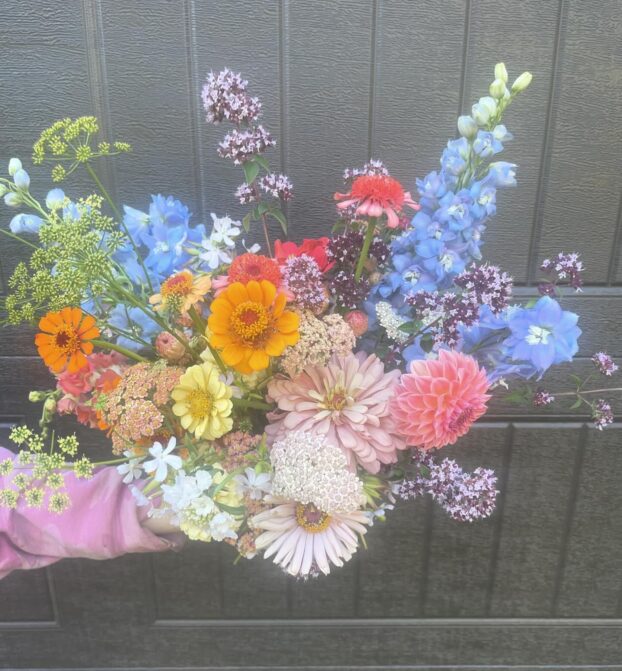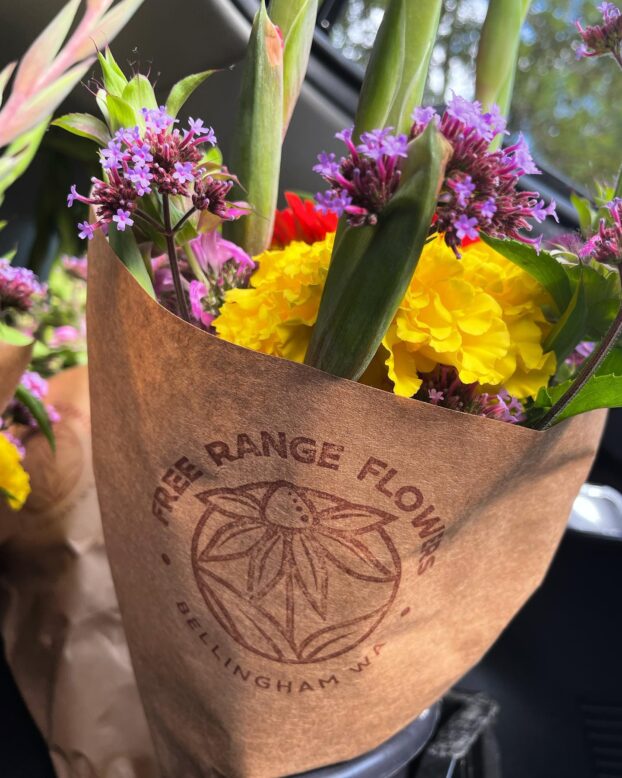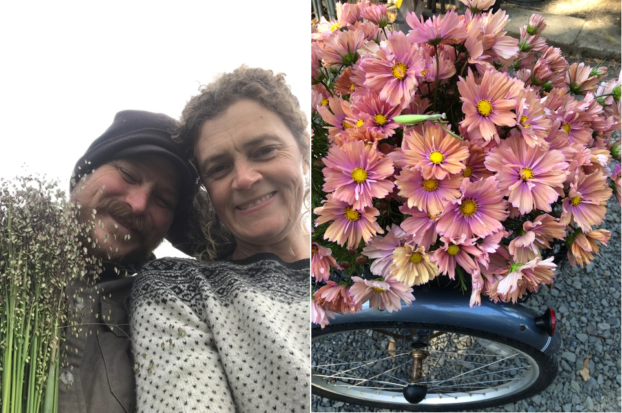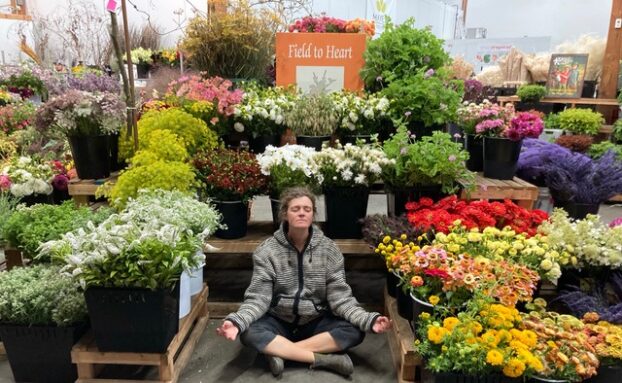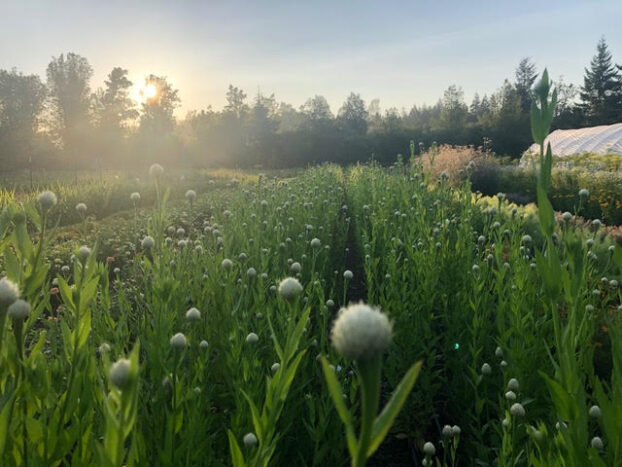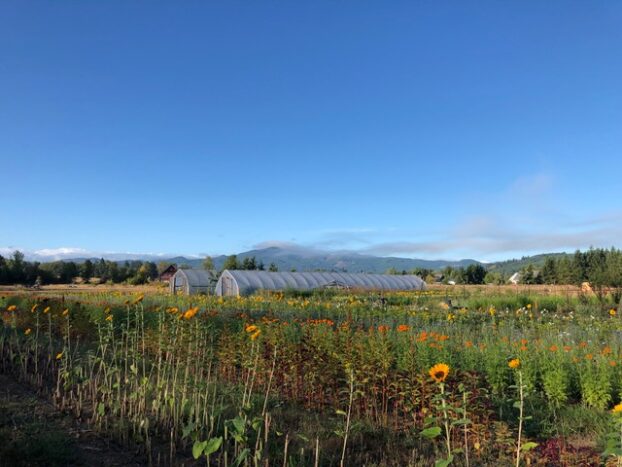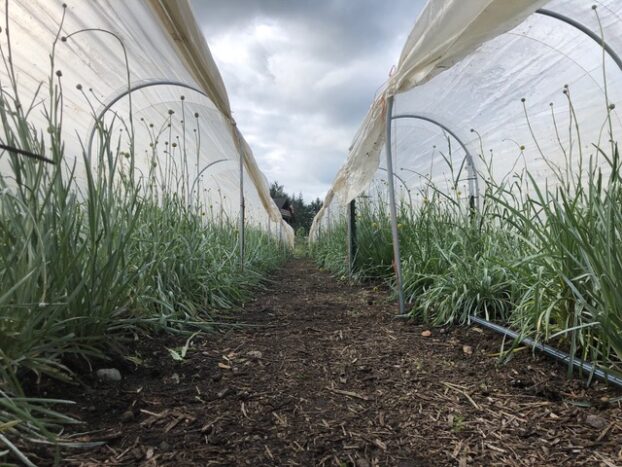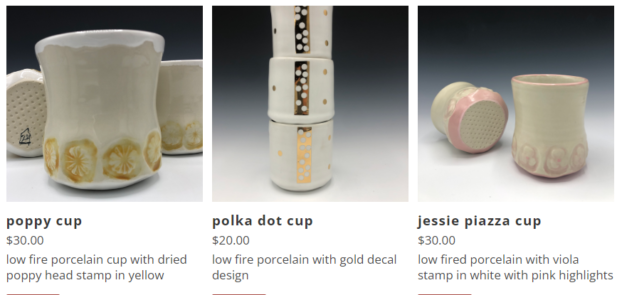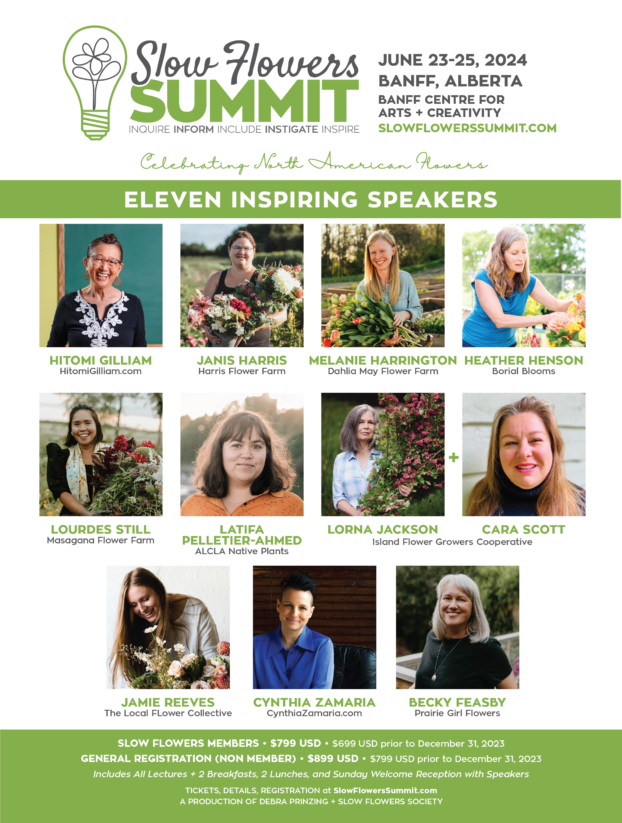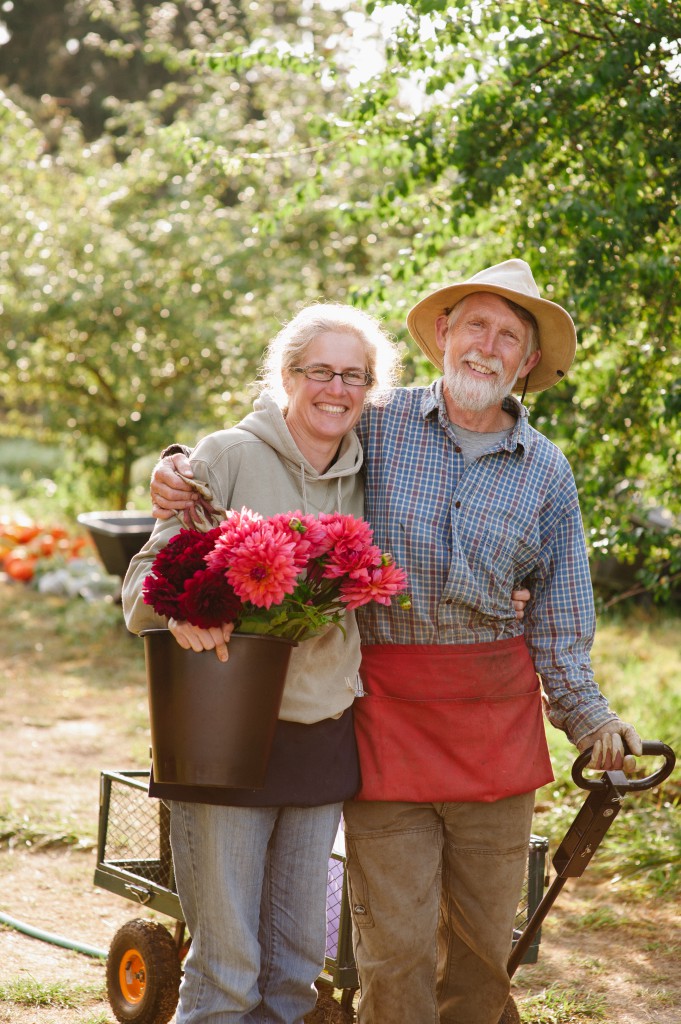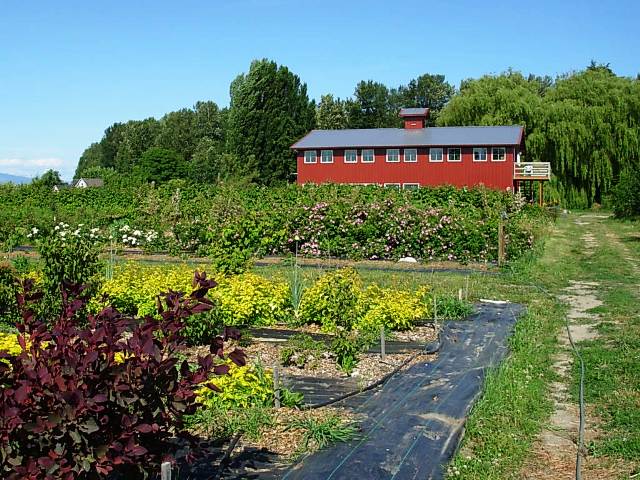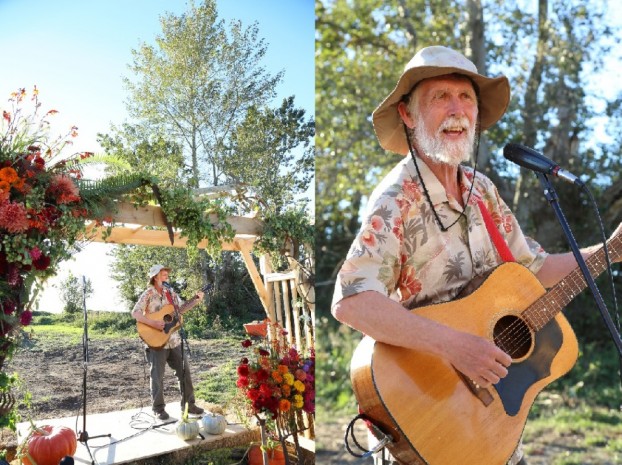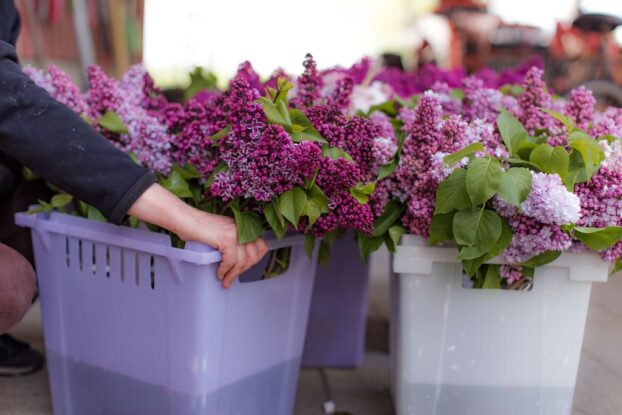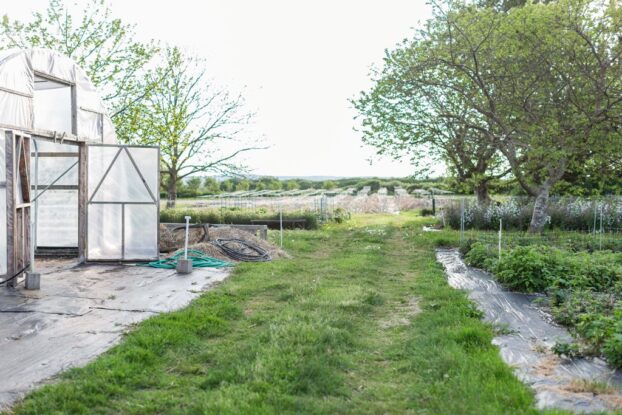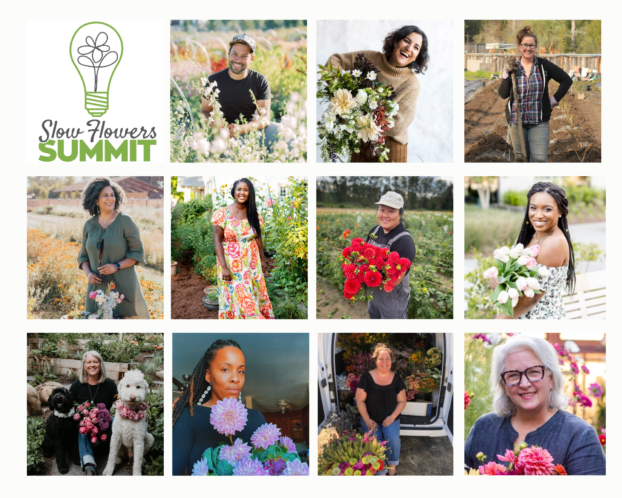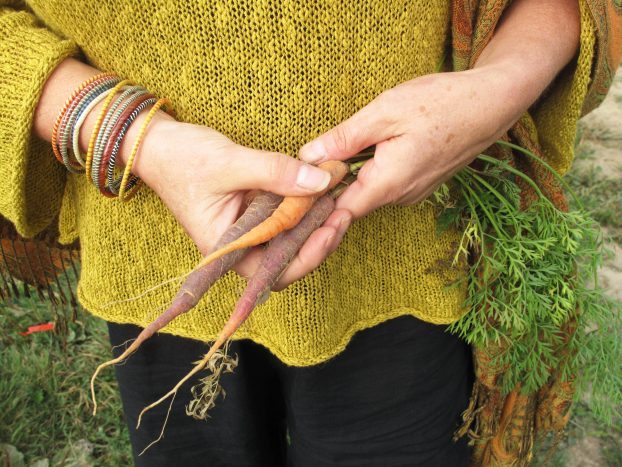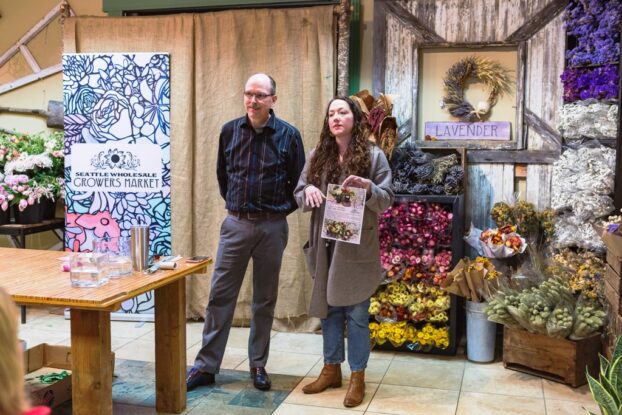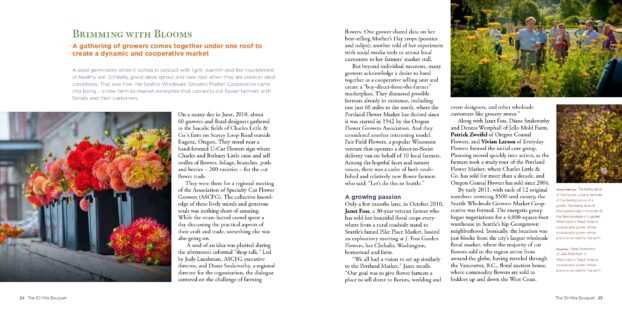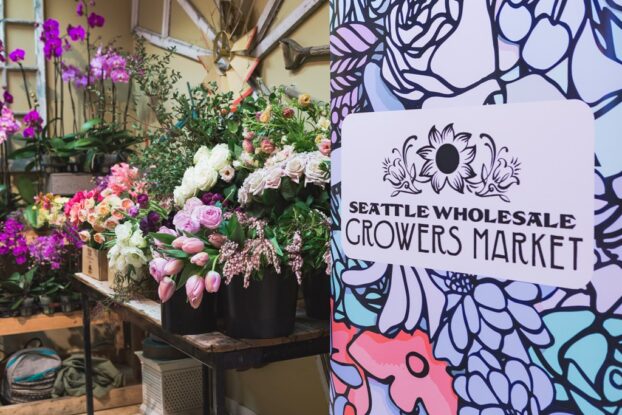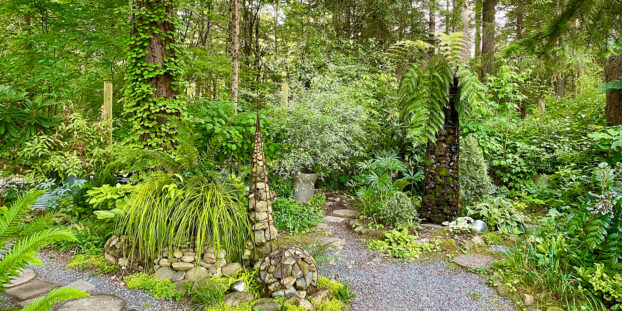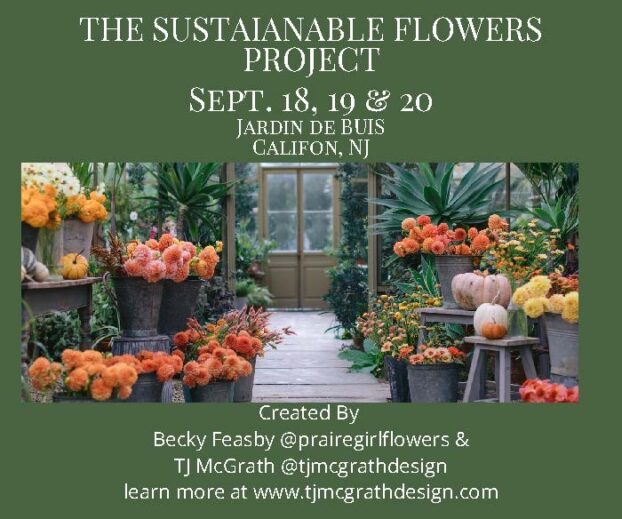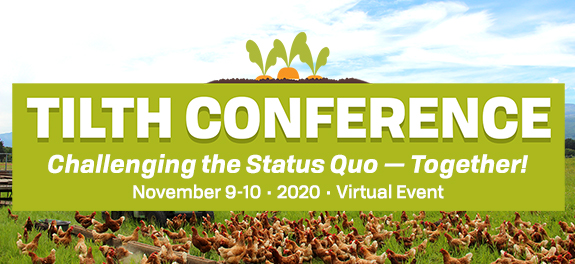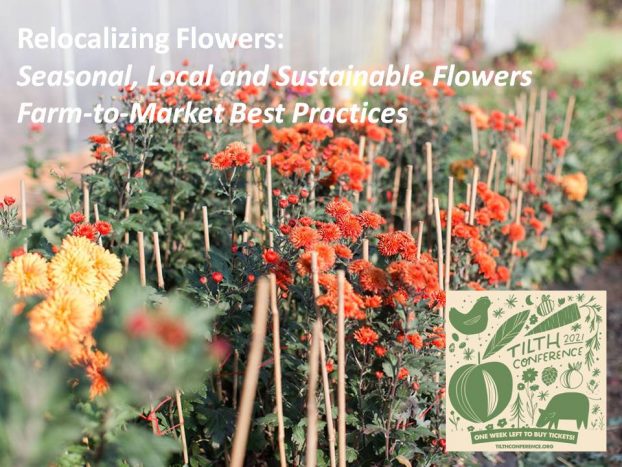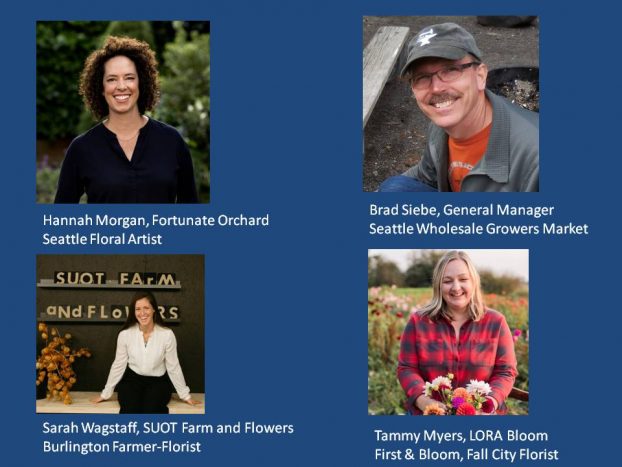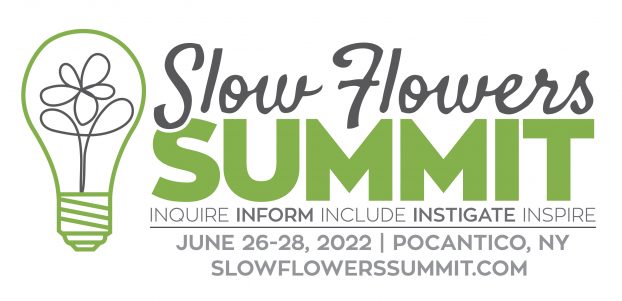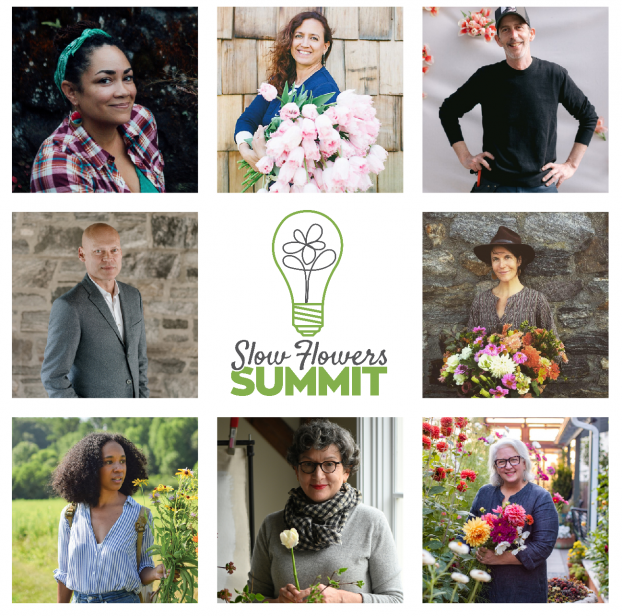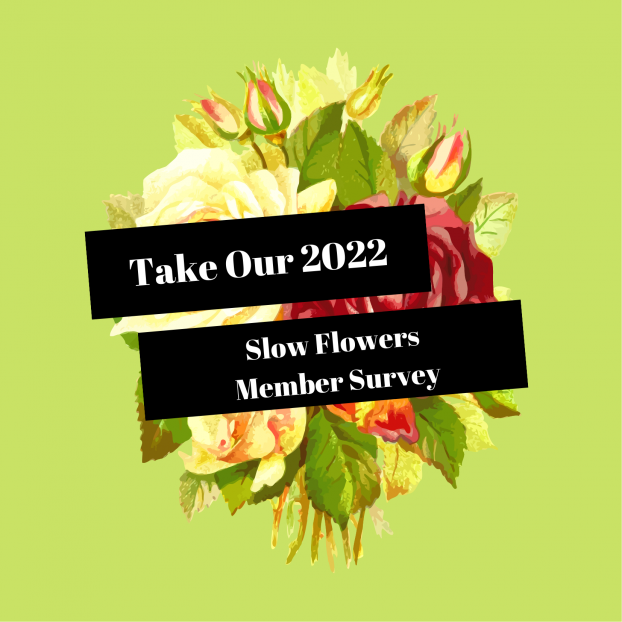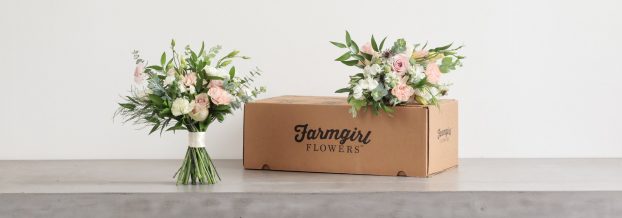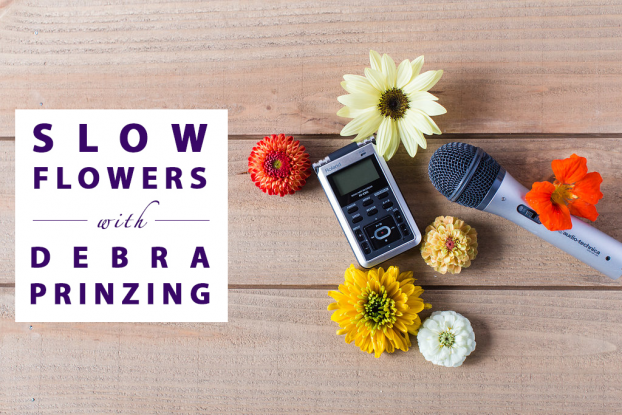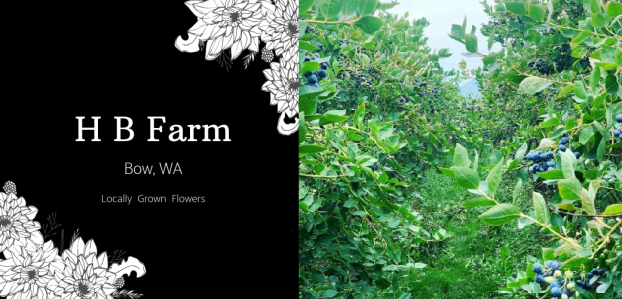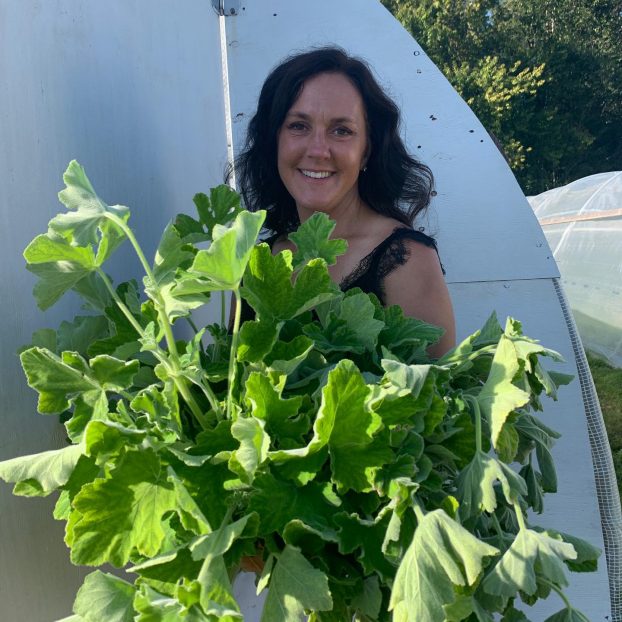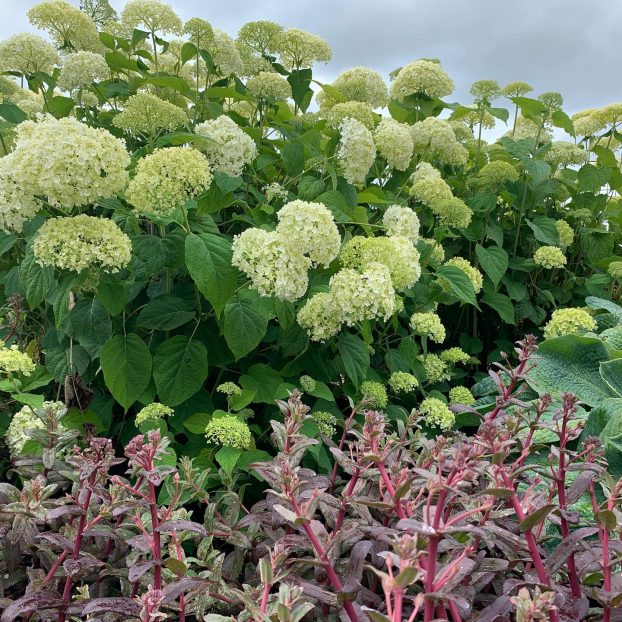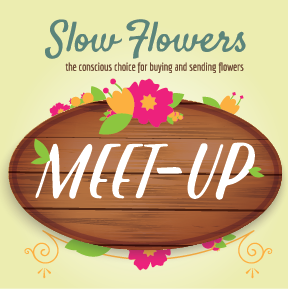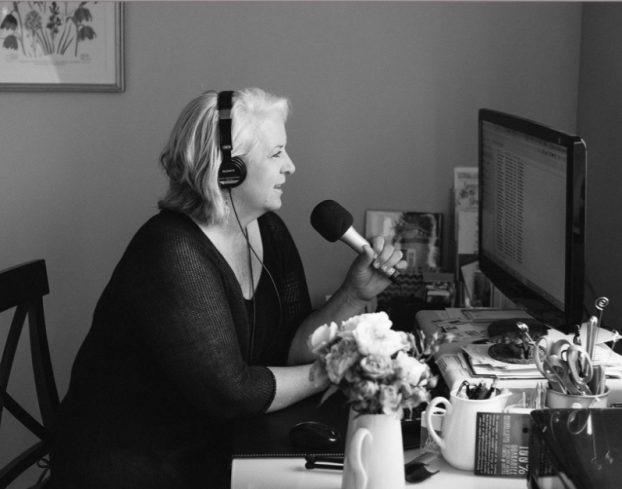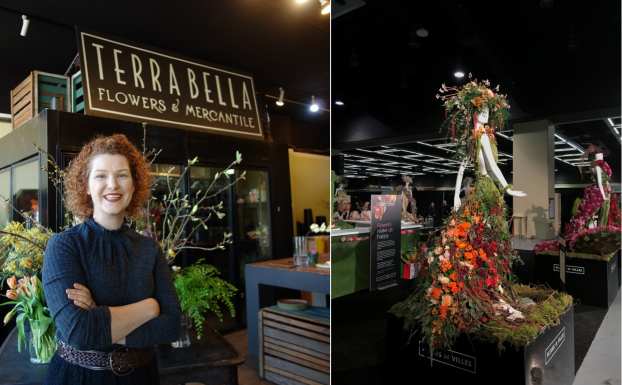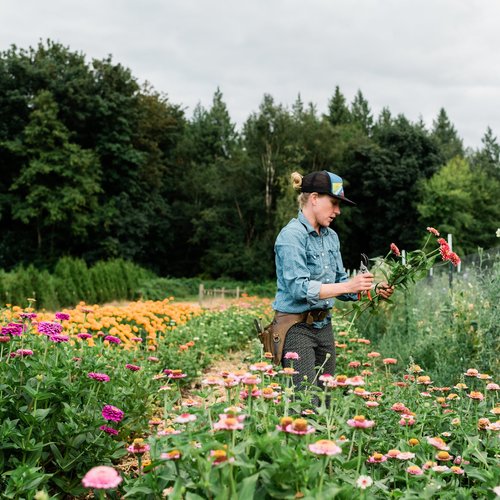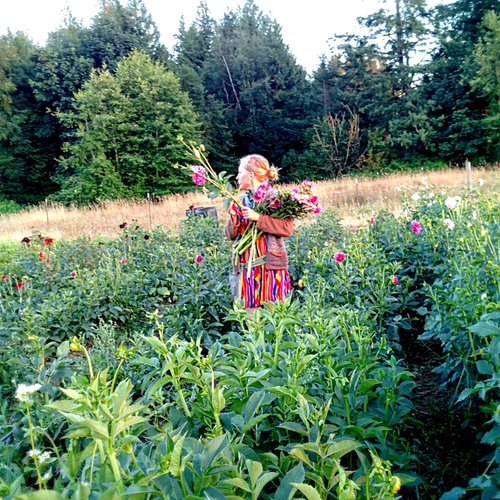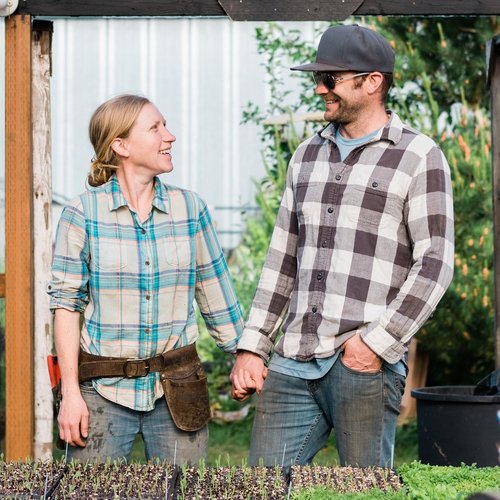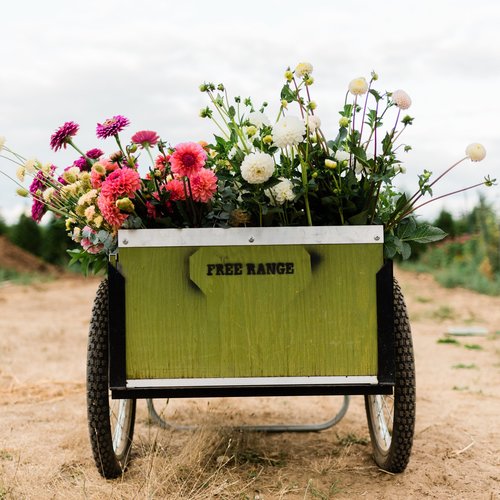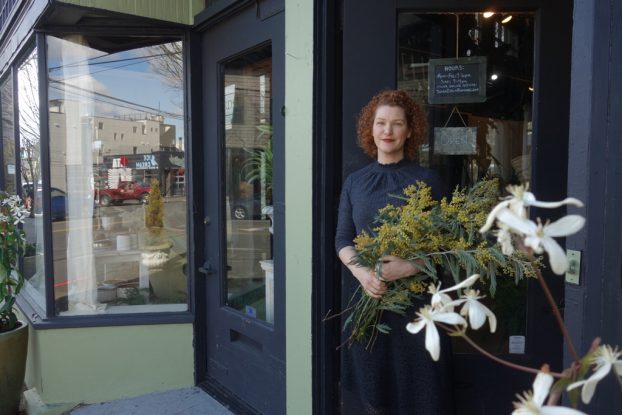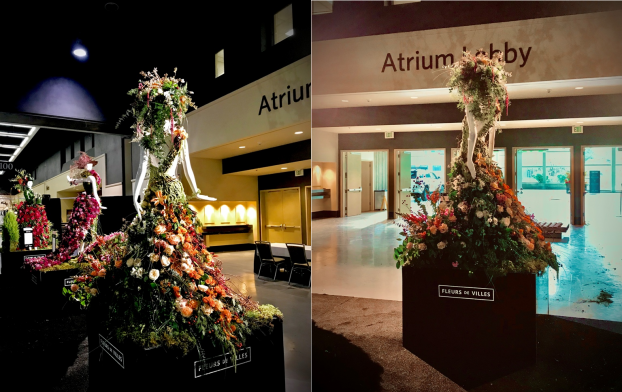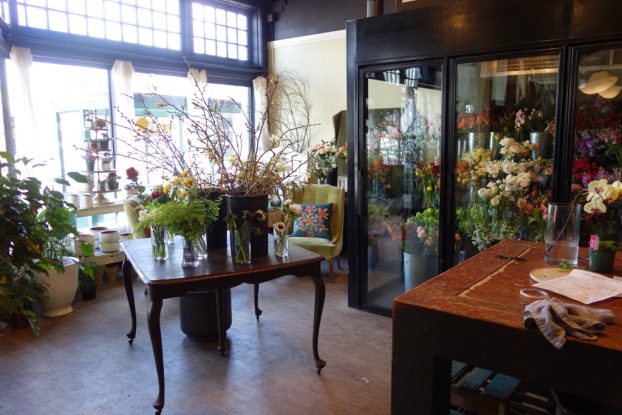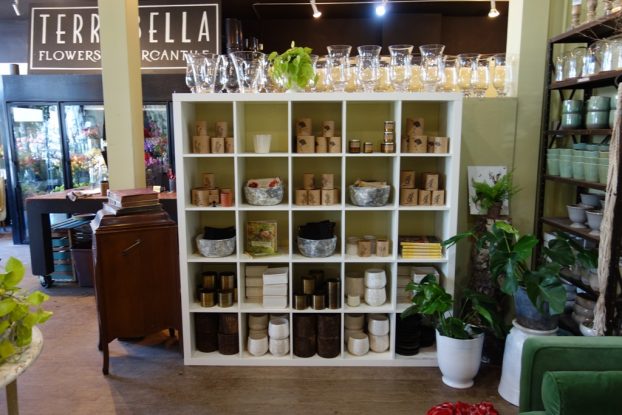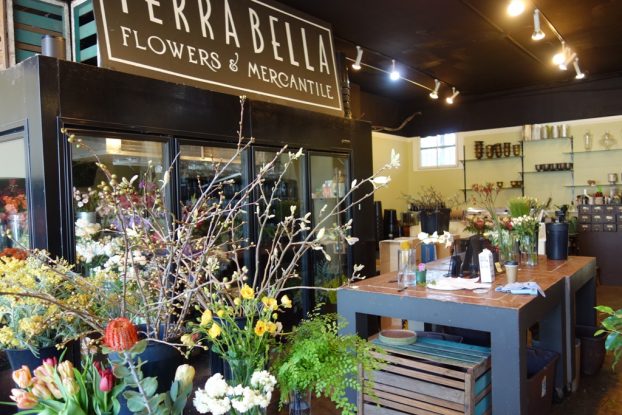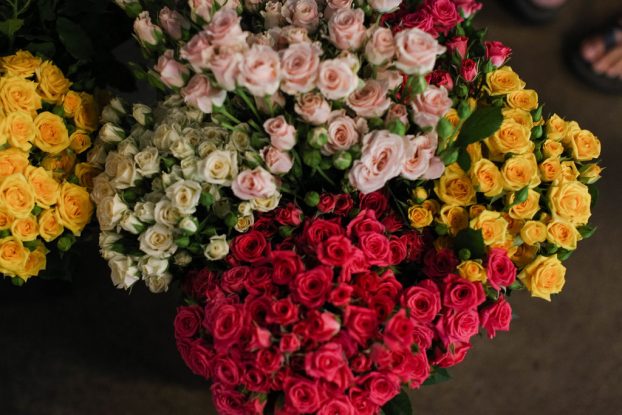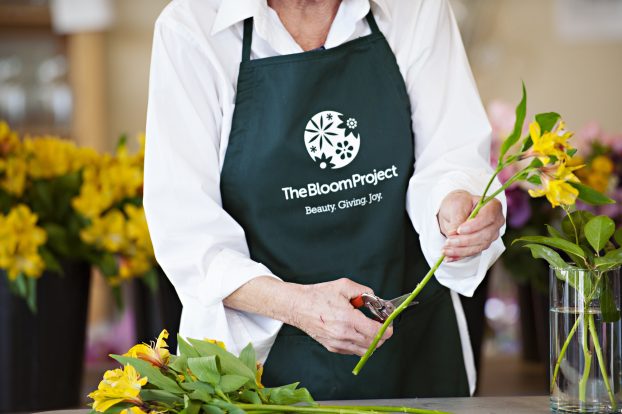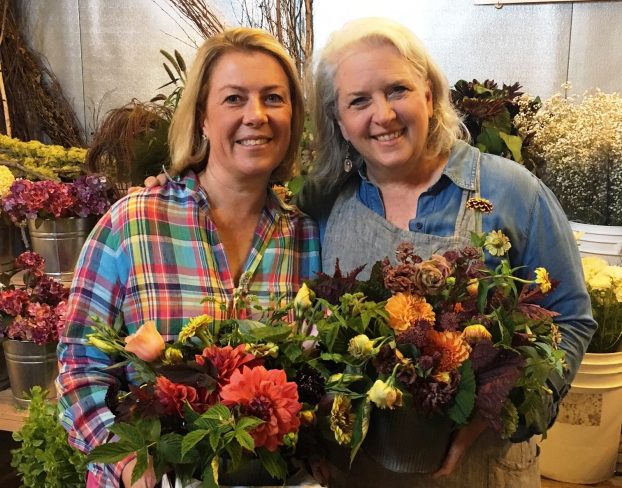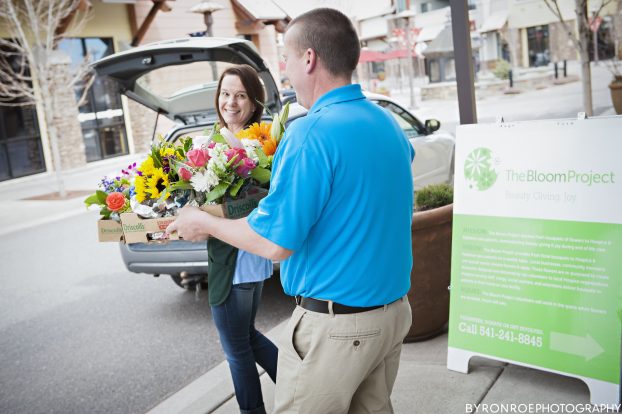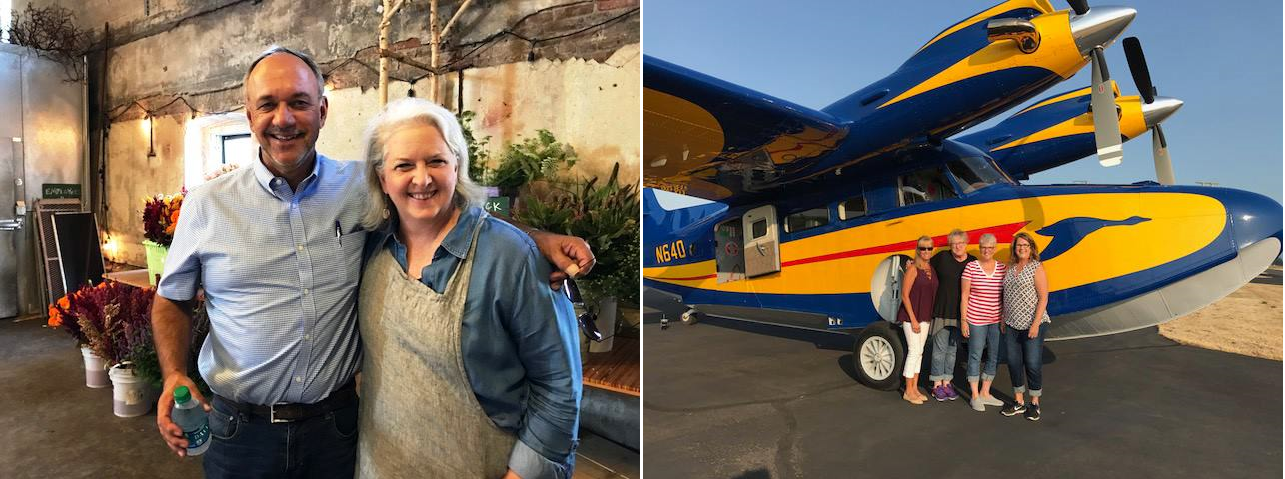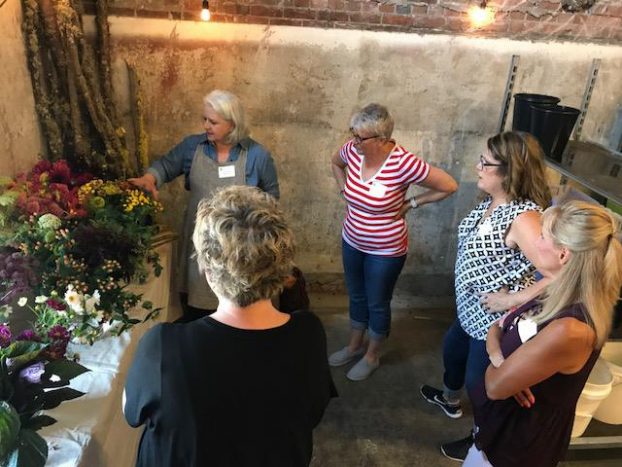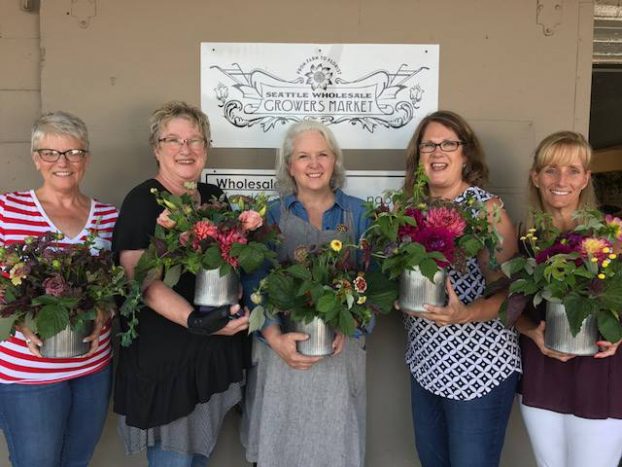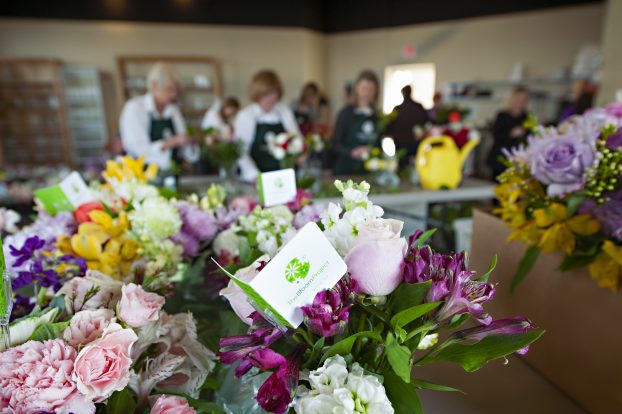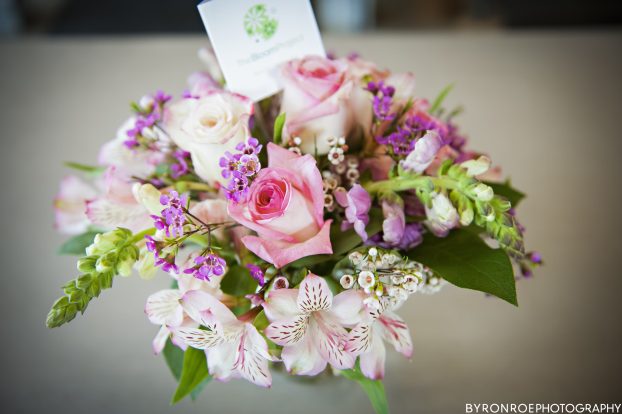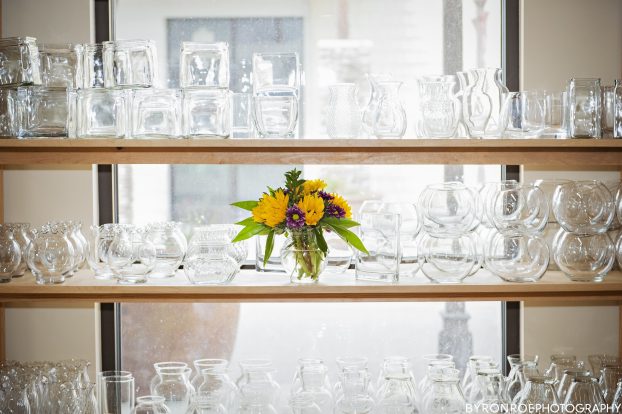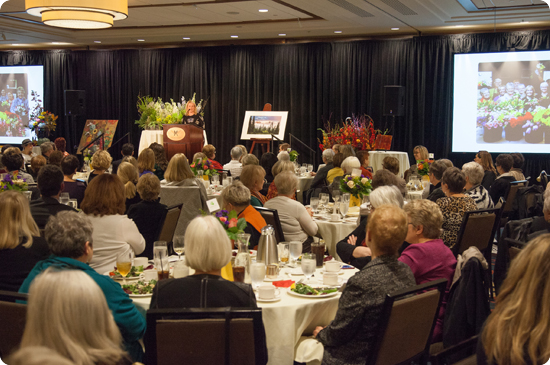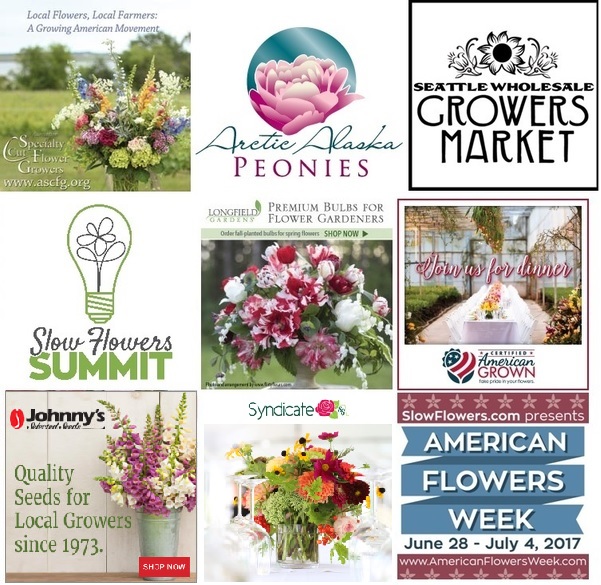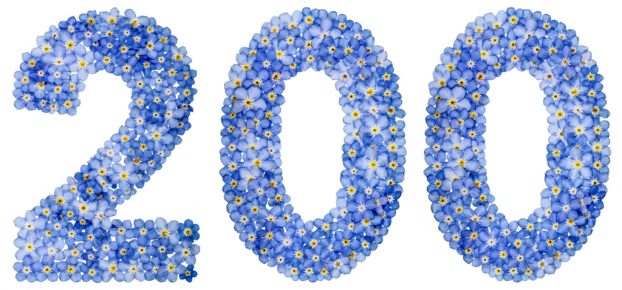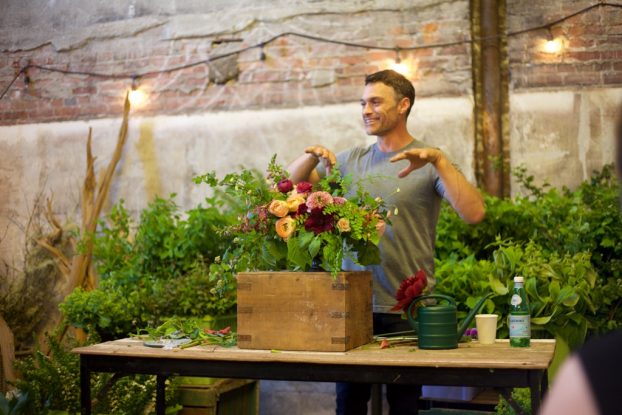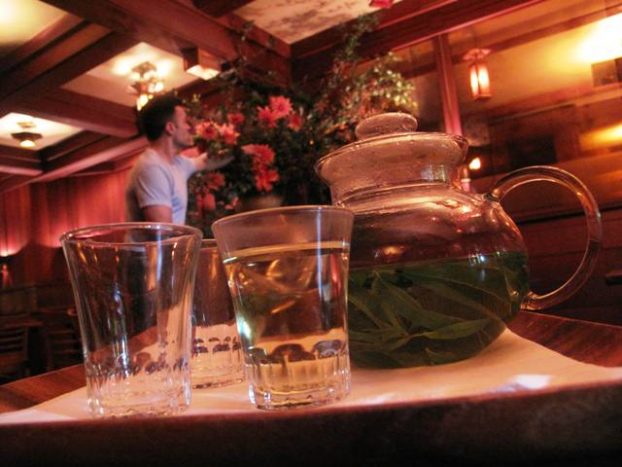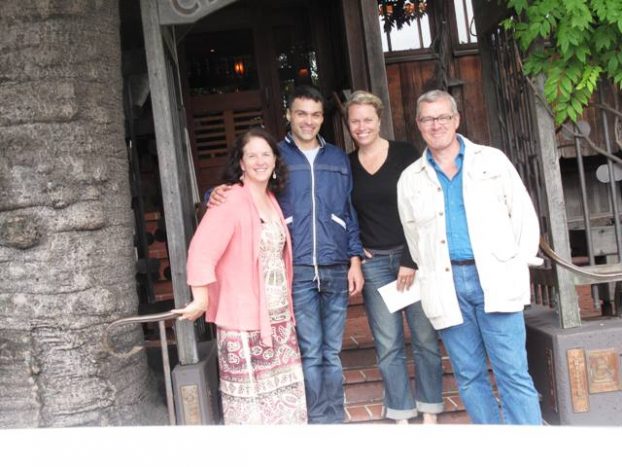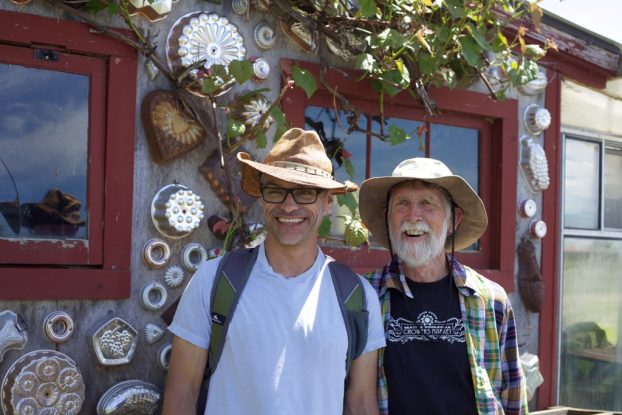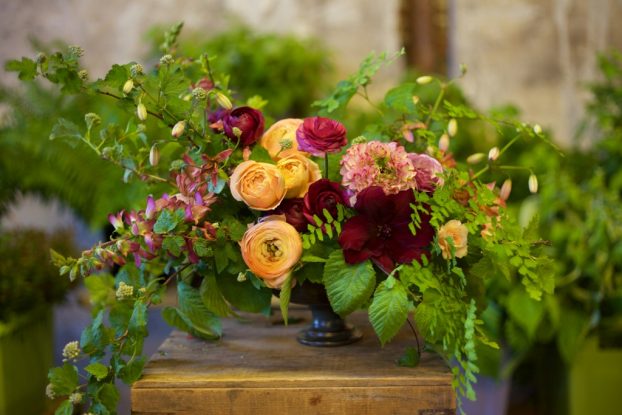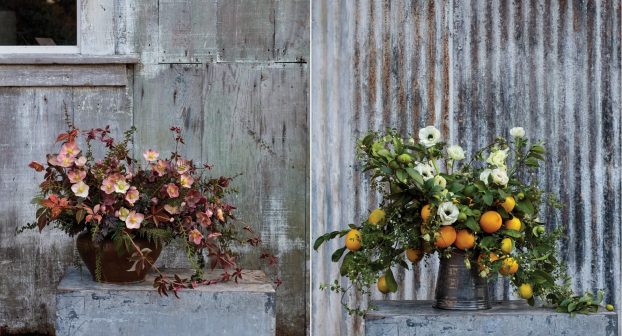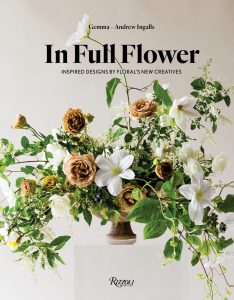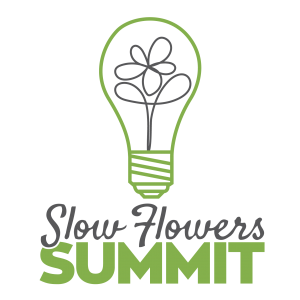Podcast: Play in new window | Download
Subscribe: Apple Podcasts | Podcast Index | RSS | More
Decades of flower farming experience add up to a new, 336-page reference guide called “Floral Standards,” compiled by members of the Seattle Wholesale Growers Market. Join me for your first chance to see a preview of this book, and to learn from some of its creative team members. Learn how you can get your hands on this incredible guide to best practices and product specifications for 230 floral crops – from Abelia to Zinnia and more!
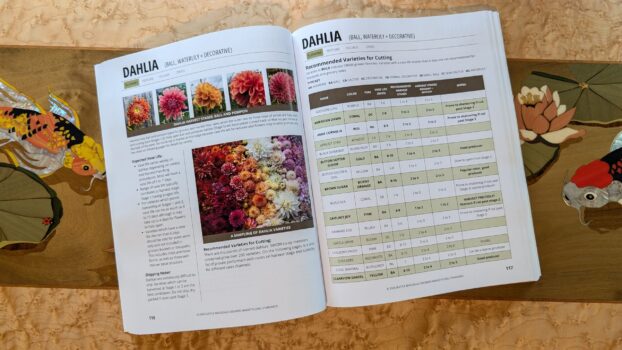
Today, I’m joined by three of the many people responsible for Floral Standards, a book that’s by flower farmers for flower farmers, introducing production and harvest know-how for 230 floral crops – all with the goal of helping specialty cut flower growers be successful.
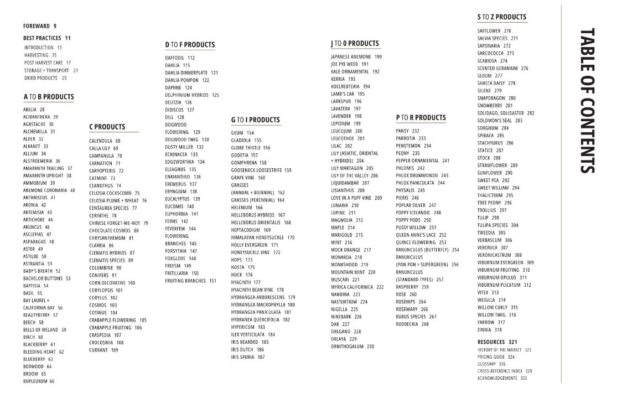
As many of you know, I have been closely aligned with the Seattle Wholesale Growers Market since the pioneering producers’ cooperative was merely an idea hatched by a group of flower farmers in the Pacific Northwest. Established in 2011, the Growers Market is the gold standard and business model for many regional flower hubs across North America, as more cooperatives and collectives strive to professionalize flower farming. Through their leadership we have witnessed an important shift in the floral marketplace – one that has inspired thousands of flower farmers, farmer-florists, floral designers, and consumers to be more thoughtful and discerning about their floral sourcing choices.
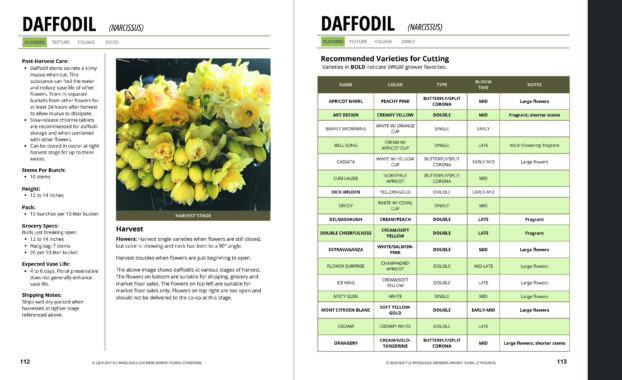
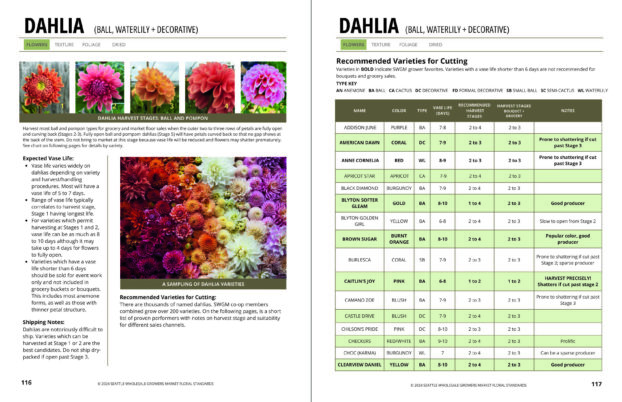
The compilation of FLORAL STANDARDS took place over a number of years, initiated by an idea to create “specification sheets” for the many products grown and marketed by member farmers.
Led by longtime board member and co-founder Diane Szukovathy, also co-founder of Jello Mold Farm, member growers invested hundreds of volunteer hours to document their successful approaches to selection, care, harvest, and post-harvest, as well as advice for packing, shipping, and supplying customers ranging from wedding and event designers to mass market retailers. They researched vase life for numerous varieties, noting recommended cultivars for commercial growing and singling out grower favorites.
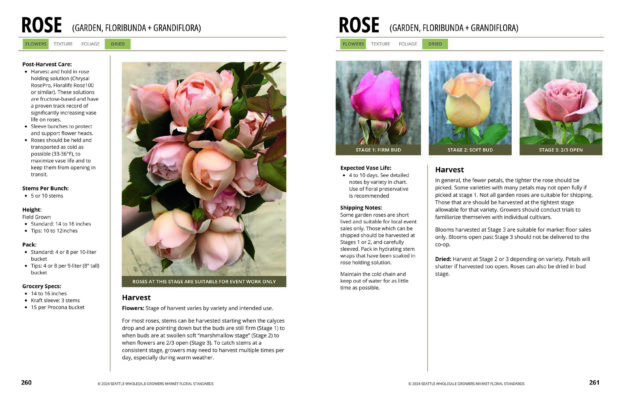
Floral Standards is hot off the press as of last week, and today I’m joined by Brad Siebe, the Market’s general manager, Vivian Larson of Everyday Flowers, a co-founder of the Market, and her cohort Diane Szukovathy, who share the story of how this amazing project was created and how it will help you. I’m so excited to host our conversation and to introduce Floral Standards to the Slow Flowers community of flower farmers and florists, not to mention cutting garden growers like me. Let’s jump right in and get started – and welcome Brad, Diane, and Vivian to the Slow Flowers Podcast.
As I mentioned, the farmers asked me to write the foreword to Floral Standards. It was quite special to be part of that experience as I reflected on the trailblazing strides of all my flower farmer friends whose beautiful, local, high-quality botanical product I have cherished using year in and year out since 2011.
ORDER: Copies are available from the Seattle Wholesale Growers Market.
Thank you to our Sponsors
This show is brought to you by Slowflowers.com, the free, online directory to more than 750 florists, shops, and studios who design with local, seasonal and sustainable flowers and to the farms that grow those blooms. It’s the conscious choice for buying and sending flowers.
Thank you to our lead sponsor, Flowerbulb.eu and their U.S. lily bulb vendors. One of the most recognizable flowers in the world, the lily is a top-selling cut flower, offering long-lasting blooms, year-round availability, and a dazzling petal palette. Flowerbulb.eu has partnered with Slow Flowers to provide beautiful lily inspiration and farming resources to help growers and florists connect their customers with more lilies. Learn more at Flowerbulb.eu.
Thank you to Store It Cold, creators of the revolutionary CoolBot, a popular solution for flower farmers, studio florists and farmer-florists. Save $1000s when you build your own walk-in cooler with the CoolBot and an air conditioner. Don’t have time to build your own? They also have turnkey units available. Learn more at storeitcold.com.
Thank you to Red Twig Farms. Based in New Albany, Ohio, Red Twig Farms is a family-owned farm specializing in peonies, daffodils, tulips and branches, a popular peony-bouquet-by-mail program and their Spread the Hope Campaign where customers purchase 10 tulip stems for essential workers and others in their community. Learn more at redtwigfarms.com.
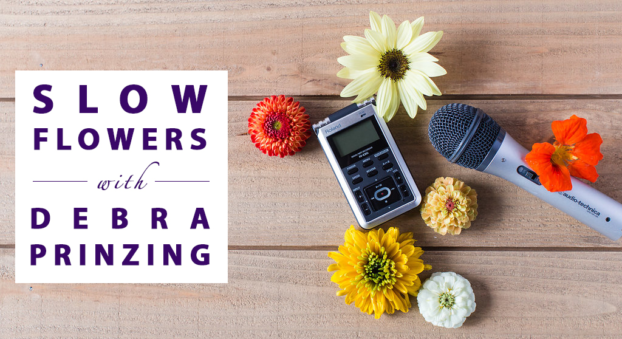
I’m so glad you joined us today! The Slow Flowers Podcast is a member-supported endeavor, downloaded more than one million times by listeners like you. Thank you for listening, commenting and sharing – it means so much. As our movement gains more supporters and more passionate participants who believe in the importance of our domestic cut flower industry, the momentum is contagious. I know you feel it, too. If you’re new to our weekly Show and our long-running Podcast, check out all of our resources at SlowFlowersSociety.com
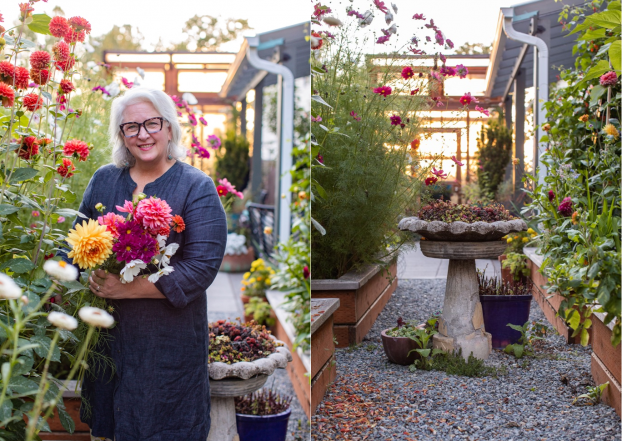
I’m Debra Prinzing, host and producer of the Slow Flowers Show & Podcast. The Slow Flowers Podcast is engineered and edited by Andrew Brenlan. The content and opinions expressed here are either mine alone or those of my guests alone, independent of any podcast sponsor or other person, company or organization. Next week, you’re invited to join me in putting more Slow Flowers on the table, one stem, one vase at a time. Thanks so much for joining us today and I’ll see you next week!
Music Credits:
Drone Pine; Gaena; Celestial Navigation
by Blue Dot Sessions
http://www.sessions.blue
Lovely
by Tryad
http://tryad.bandcamp.com/album/instrumentals
http://creativecommons.org/licenses/by-sa/3.0/
In The Field
audionautix.com











